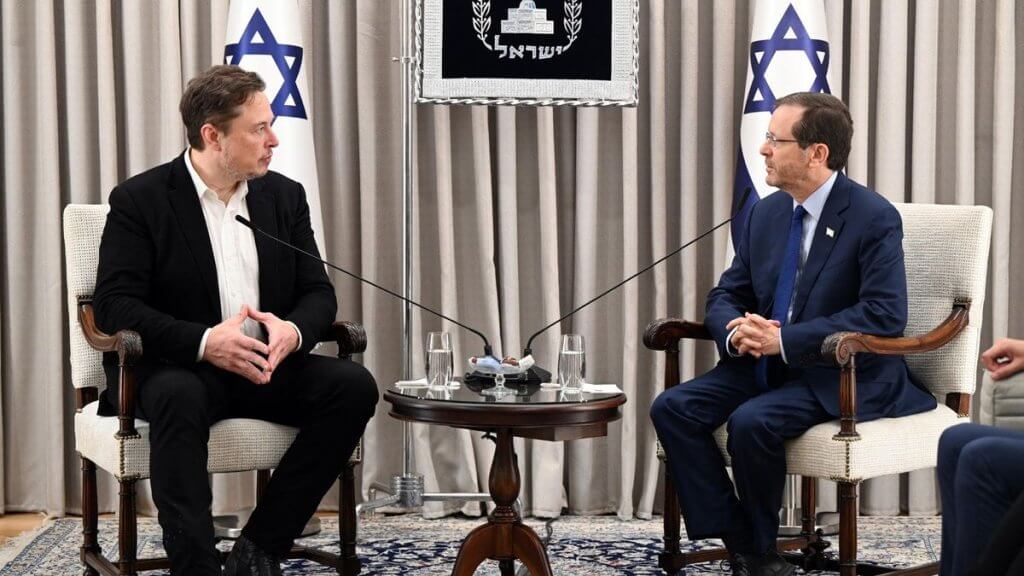Elon Musk and the Israeli government have reached an agreement over the use of Starlink satellite services in Gaza.
The SpaceX CEO met with Israel’s President Isaac Herzog and Prime Minister Benjamin Netanyahu during a visit on Monday (Nov. 27) in which Musk toured the Kfar Azza kibbutz. This is where a horrific massacre was carried out by Hamas terrorists on Oct. 7 that spurred a bloody, ongoing war involving the deaths of more than 1,000 people in Israel and more than 13,000 people in Palestine. Israel and Hamas are currently in the midst of a cease fire to allow hostages and prisoners on both sides to return home.
After touring the site, Musk commented about the power of propaganda. “It’s amazing what humans can do if they’re fed lies since they were children. They will think that murdering innocents is a good thing, which shows how much propaganda can affect people’s minds,” Musk said during his visit, according to the Associated Press.
While much of the meeting concerned comments Musk made on X (formerly Twitter) that many, including the White House, condemned as anti-Semitic, it also helped iron out an agreement that would allow Starlink internet services to be used in Gaza with the approval of the Israeli government. It hasn’t been specified whether this means on a case-by-base basis or if blanket approval will be granted under certain circumstances.
On Oct. 28, Musk published a statement on X (formerly Twitter) that Starlink would be available to “internationally recognized aid organizations in Gaza.” In response, Israeli minister of communications Shlomo Karhi stated on X that Hamas would only use Starlink for “terrorist activities.”
“There is no doubt about it, we know it, and Musk knows it,” Karhi added.
But following his meeting with Musk on Monday (Nov. 27), Karhi took to X to state that “Starlink satellite units can only be operated in Israel with the approval of the Israeli Ministry of Communications, including the Gaza Strip.”
Starlink satellite internet services have been used to aid humanitarian efforts in Ukraine following Russia’s invasion of the country, as well as in Tonga following a volcanic eruption that interrupted communication services on Dec. 20, 2021.
The Starlink satellite megaconstellation provides high-speed internet to subscribers around the world. It currently consists of more than 5,000 operational satellites, according to astrophysicist and spacecraft tracker Jonathan McDowell, but the number keeps growing with near-weekly launches of more spacecraft — and SpaceX shows no signs of stopping.
The company already has U.S. government approval to deploy 12,000 Starlink craft into low Earth orbit, and has applied for approval for an additional 30,000 satellites.

